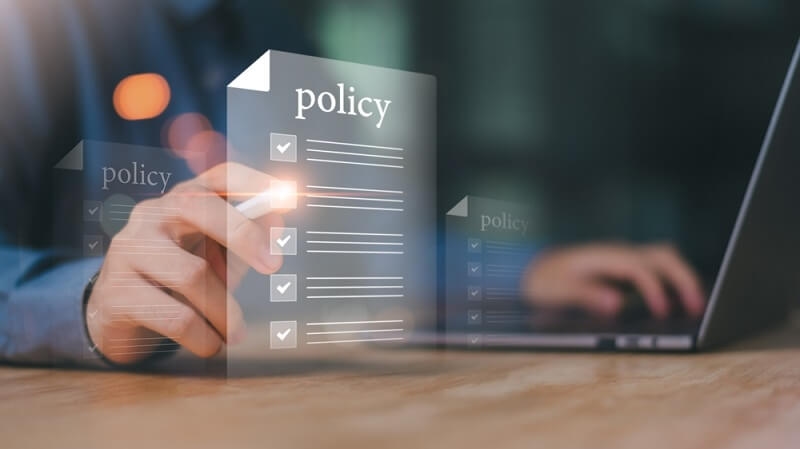
Insurance. The word alone makes most people’s eyes glaze over. It’s one of those necessary but not-so-thrilling expenses—kind of like replacing the air filter in your AC. You know you have to do it, but you’re not exactly excited about the process.
But here’s a little secret: you could be sitting on one of the easiest money-saving opportunities without even realizing it. We’re talking about bundling insurance policies—a fancy way of saying, “Hey, let’s get multiple types of insurance from the same company and pay less.”
The kicker? This isn’t just a few bucks off here and there. Done right, bundling can save you hundreds of dollars a year. That’s money you could put toward a vacation, an emergency fund, or even paying down debt faster. And it takes way less effort than most “money-saving hacks” floating around online.
When you bundle, you’re basically telling your insurance provider, “I’ll bring more of my business to you if you give me a better deal.” Instead of having separate policies with different companies—say, one for your car and one for your home—you combine them under one insurer.
This move often unlocks multi-policy insurance discounts because insurance companies love loyal, long-term customers. You’re less likely to shop around every year if everything’s in one place, and that loyalty translates into lower prices for you.
The most well-known combo is to bundle home and auto coverage. But that’s just the start. Here are a few popular pairing options:
Some insurers even offer bundles that include pet insurance, small business policies, or specialty coverages for things like jewelry or collectibles.
It comes down to simplicity and loyalty. From their perspective, if they can cover multiple areas of your life, you’re less likely to leave for a competitor. It’s also cheaper for them to manage multiple policies for one customer than to go out and find multiple new customers for each type of coverage.
And since you’re essentially “buying in bulk,” they pass some of those savings on to you. That’s the heart of saving money with insurance bundles—more coverage for less money.
The savings vary, but many people see anywhere from 5% to 25% off their total premiums. That might not sound like much at first glance, but let’s do the math.
If you’re paying $1,200 a year for auto insurance and $1,800 for homeowners insurance separately, that’s $3,000 total. A 15% bundle discount could bring that down to $2,550—a cool $450 back in your pocket. Every year.
Now multiply that over five years, and you’re looking at $2,250 saved—without cutting coverage.
Sure, the money is great. But there are other benefits to bundling that make life easier:
One company, one renewal date (or at least fewer of them), and fewer payments to remember.
If something happens that affects more than one policy—say, a major storm damages both your car and home—it’s much simpler to work with one company instead of juggling two or three.
Long-term customers who carry multiple policies often get priority service or more personalized attention.

Bundling isn’t always the answer, but it’s particularly smart if:
It can also be a great move if you’re moving, buying a new car, or hitting another “life change” moment when you’d be re-shopping for insurance anyway.
Before you rush into a bundle, keep a few things in mind:
Sometimes, you can get cheaper rates by keeping policies separate—especially if one provider is much cheaper for a specific type of coverage. Always compare total costs before deciding.
Just because you bundle doesn’t mean you should accept lower coverage limits. Make sure both (or all) policies still meet your needs.
A big discount might make it tempting to stay put forever, but if your rates creep up over time, it’s worth re-shopping.
Here’s a simple game plan:
Write down your auto, home, renters, life, or any other active insurance policies, along with coverage limits and annual costs.
Ask what kind of bundle discounts they offer. Get the numbers in writing.
Get quotes from at least three other companies for the same coverage levels, both bundled and separate.
Look at the full picture—premiums, deductibles, limits, and perks.
If bundling saves money and keeps coverage strong, go for it. If not, stick with your current setup or look for other ways to save.
Meet Sarah. She had auto insurance with one company and homeowners insurance with another. She paid about $3,200 a year total. After one phone call to her auto insurer, she learned they offered a bundle that would cut her costs by 20%—and even added extra roadside assistance at no charge.
Her new total? $2,560 a year. That’s $640 saved annually with no drop in coverage.
Ask about payment frequency: Some insurers give extra discounts if you pay annually instead of monthly.
Combine it with other discounts: Safe driver, good student, or security system discounts can stack on top of your bundle savings.
Review every year: Just because you got the best deal once doesn’t mean it’s still the best deal next year.
Bundling isn’t just a marketing gimmick—it’s a legitimate way to cut costs while simplifying your financial life. But like any financial decision, it’s worth doing your homework before jumping in. Compare, question, and be willing to walk away if the numbers don’t work in your favor.
When it does make sense, though, it’s one of the easiest wins you’ll find in personal finance. A few calls, a couple of quotes, and you could be looking at hundreds of dollars saved each year—with fewer bills, fewer headaches, and the same great protection.
This content was created by AI